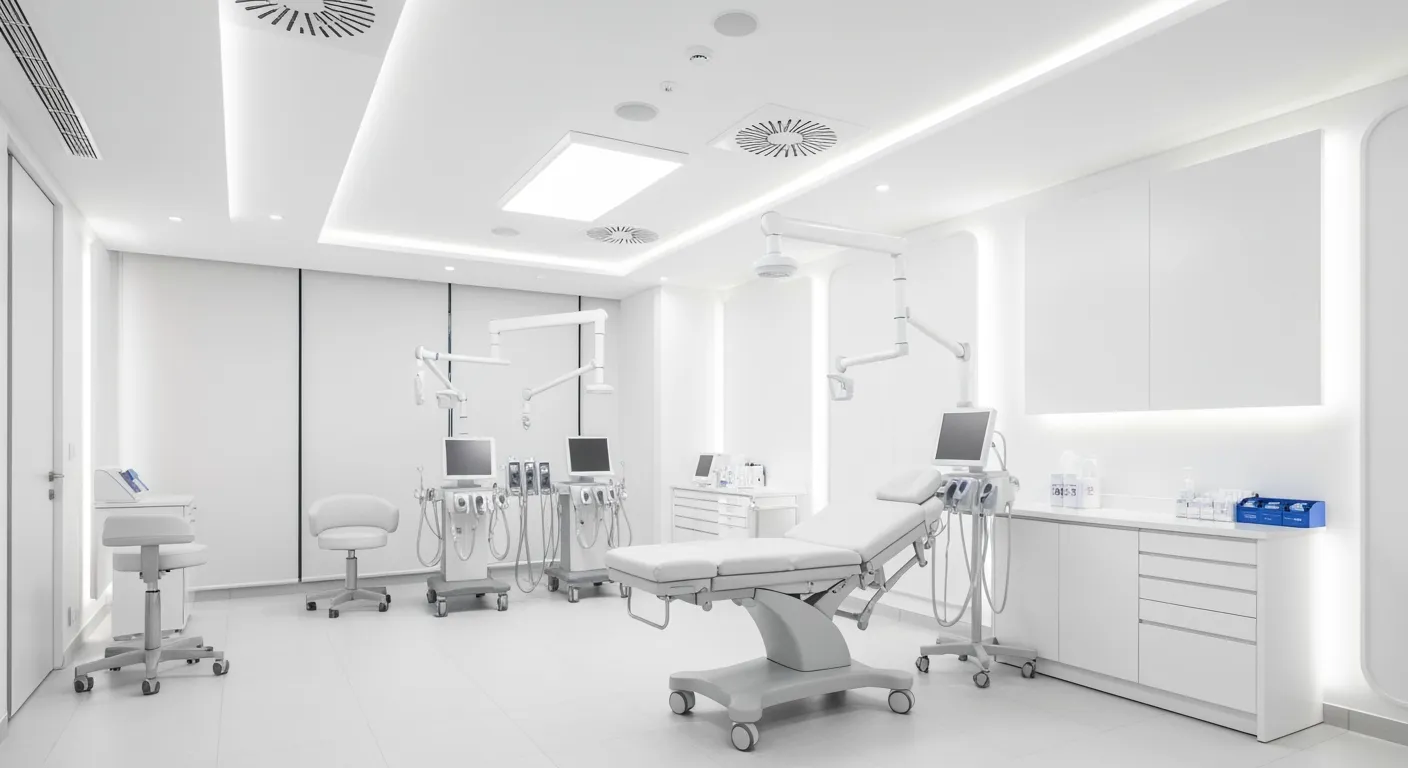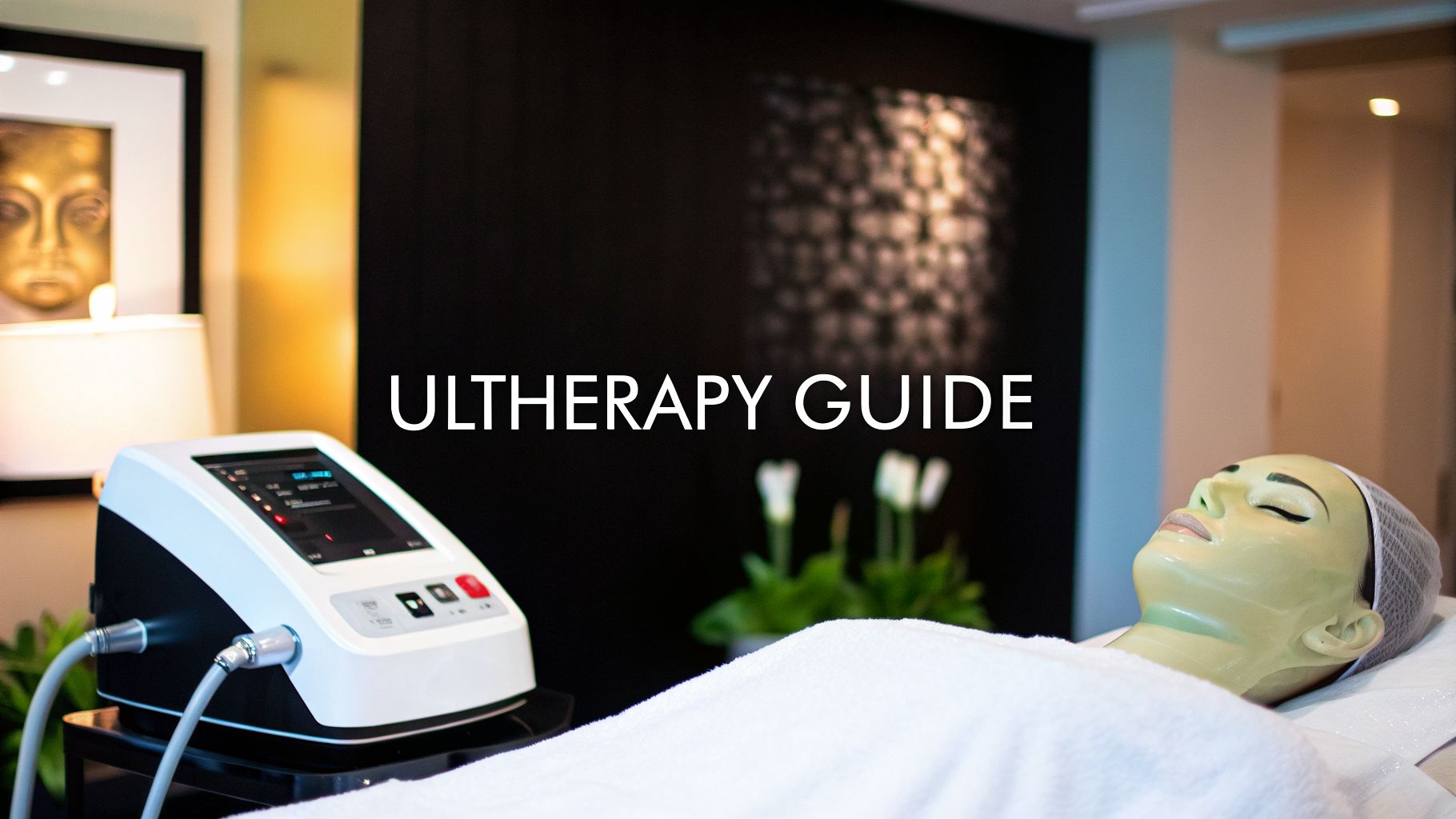
February 21, 2026
How to Prevent Keloid Scars After Surgery A Definitive Guide
Discover how to prevent keloid scars after surgery with our definitive guide. Learn expert strategies for risk assessment, surgery, and post-op scar care.
Nov 13, 2025

Plastic surgery is a specialized medical field focused on healing and restoring patients affected by injuries, disfigurement, scars, and congenital deformities. It also encompasses aesthetic, or cosmetic, procedures designed to improve appearance and enhance self-confidence. The range of treatments handled by plastic surgeons includes repair of birth defects, trauma reconstruction, tumor removal, skin grafts, burns management, and cosmetic enhancements such as facelifts, rhinoplasty, and breast surgeries.
Plastic surgeons undergo extensive postgraduate training lasting 5 to 7 years. This includes foundational general surgery experience and in-depth plastic surgery-specific training. Board certification by the American Board of Plastic Surgery is a marker of this rigorous education and examination process. This certification assures patients that their surgeon has expertise acquired through a combination of dedicated surgical education and practical experience.
Reconstructive surgery aims to restore normal form and function to parts of the body affected by disease, trauma, or congenital anomalies. These procedures often have medical necessity and may be covered by insurance. Cosmetic surgery, on the other hand, focuses on improving the aesthetic appearance of otherwise normal body structures to boost psychological well-being and self-esteem. While both specialties require advanced surgical skills, reconstructive interventions address health and functionality, whereas cosmetic surgeries prioritize appearance enhancement.

Dr. Marc Fater is the experienced leader of Cape Cod Plastic Surgery, located in Hyannis, Massachusetts. With 38 years of expertise in plastic, cosmetic, and reconstructive surgery, Dr. Fater is a board-certified plastic surgeon who also holds certification in general surgery—credentials that reflect extensive post-graduate training and recognized proficiency.
His professional approach is deeply rooted in patient-centered care, ensuring that every individual receives personalized treatment plans tailored to their unique goals and medical needs. Dr. Fater emphasizes realistic expectations and comprehensive consultation, offering patients clear insights into potential risks, outcomes, and recovery processes.
Operating within an accredited facility affiliated with Cape Cod Hospital, Dr. Fater maintains rigorous safety standards consistent with national best practices in plastic surgery. His respect for individualized care extends to both reconstructive and aesthetic procedures.
Cape Cod Plastic Surgery provides a broad spectrum of surgical services including facial rejuvenation, breast surgeries such as reduction and reconstruction, body contouring, treatment of localized fat deposits, wound repair, and removal of skin cancers or lesions. This diverse offering demonstrates Dr. Fater’s versatile expertise in addressing both functional restoration and cosmetic enhancement.
Under his leadership, patients can expect a commitment to natural-looking results, scar minimization techniques such as Z-plasty and W-plasty, and attentive follow-up care—all hallmarks of a clinic dedicated to improving patient confidence and quality of life through advanced surgical techniques and compassionate care.

Cape Cod Plastic Surgery provides a wide array of both surgical and non-invasive treatments, carefully tailored to meet each patient's unique goals and needs. Their surgical expertise includes cosmetic and reconstructive procedures such as breast augmentation and reduction, rhinoplasty, facelifts, and body contouring techniques. These procedures utilize advanced surgical methods designed to optimize outcomes and minimize visible scarring (Plastic surgery and scars, including scar minimization techniques such as Z-plasty and W-plasty).
In addition to surgical options, Cape Cod Plastic Surgery offers state-of-the-art non-invasive aesthetic treatments. These include Botox injections which effectively smooth deep facial lines and wrinkles, and dermal fillers like Juvéderm and Radiesse that restore facial volume and enhance contours for a more youthful appearance.
The practice also features advanced skin resurfacing technology with the exclusive Tetra CO2 CoolPeel laser. This innovative laser treatment improves skin texture, reduces fine lines, and diminishes age spots, achieving noticeable skin rejuvenation with minimal downtime.
For body sculpting and fat reduction, they provide CoolSculpting and DualSculpting, which are non-surgical treatments using controlled cooling to reduce fat in targeted areas safely and effectively. EMSCULPT is another offering aimed at building muscle and toning body areas, providing an alternative to exercise for strengthening and contouring.
Furthermore, Profound radio-frequency treatments are used to tighten sagging skin and stimulate natural collagen and elastin production, improving firmness and elasticity without surgery.
Overall, Cape Cod Plastic Surgery emphasizes personalized care, combining advanced technology and products to enhance appearance while prioritizing patient comfort and safety. They also maintain high standards of care consistent with Quad A accreditation and Accreditation Association for Ambulatory Health Care (AAAHC) to ensure the safest surgical environment and optimal patient outcomes.

Cape Cod Plastic Surgery is deeply committed to patient safety in cosmetic surgery by conducting all procedures within fully accredited medical facilities. These facilities meet rigorous standards established by respected organizations such as the Accreditation Association for Ambulatory Health Care (AAAHC), the Joint Commission, and Quad A accreditation, ensuring a controlled and secure surgical environment.
The practice enforces strict protocols that cover equipment sterilization, maintenance, emergency preparedness, and compliance with Occupational Safety and Health Administration (OSHA) regulations. These comprehensive measures minimize infection risks and procedural complications to safeguard patient safety in cosmetic surgery at every stage of care.
Highly trained and licensed plastic surgeons, such as Dr. Marc Fater, MD, lead the surgical team, backed by experienced nurses and staff. Anesthesia is administered exclusively by certified anesthesiologists who tailor anesthesia plans based on individual patient health, enhancing overall safety throughout surgery.
Before surgery, patients undergo thorough evaluations including detailed health history reviews to identify any factors that might affect surgery or anesthesia safety. Customized treatment plans are developed with the patient to set realistic goals and expectations as recommended in plastic surgery specialty Q&A. Postoperative care is closely managed with follow-up visits, pain management, and healing guidance to promote optimal recovery and promptly address any concerns.
Through these meticulous safety protocols in cosmetic plastic surgery and patient-centered care approaches, Cape Cod Plastic Surgery ensures that each patient’s surgical experience is as safe and successful as possible.
Plastic surgery can significantly improve appearance and self-confidence, but achieving this requires having realistic expectations for cosmetic surgery. Patients with unstable or problematic mental health may face challenges with surgery outcomes and satisfaction. Surgeons emphasize the need to understand that procedures may improve but not perfect. Psychological stability helps ensure emotional readiness for surgery and realistic goals.
A thorough consultation is essential. It includes reviewing your medical history, discussing desired changes, assessing suitability, and explaining risks and benefits. Surgeons often use photos or digital imaging to help visualize outcomes. Shared decision-making allows you and your surgeon to create a personalized plan that matches your needs and expectations.
All surgeries carry risks such as bleeding, infection, wound separation, and scarring. Smoking and health conditions can increase complications. Discuss anesthesia options as they range from local to general. Recovery times vary widely based on the procedure type and individual factors. Following your surgeon’s instructions during recovery is critical for optimal healing. Learn more about patient safety in cosmetic surgery and postoperative care in plastic surgery.
Reconstructive surgeries addressing birth defects, injuries, or cancer-related changes are often covered by insurance when medically necessary. Cosmetic procedures aimed solely at aesthetic improvement typically are not covered and require out-of-pocket payment. Clarify costs and insurance policies before proceeding to avoid surprises.
Understanding these considerations helps patients make informed decisions and achieve safer, satisfying plastic surgery experiences.
Plastic surgery encompasses a broad range of procedures aimed at both restoring function and enhancing appearance. Common reconstructive surgeries address birth defects, tumors, injuries, burns, and post-cancer reconstruction such as breast reconstruction after mastectomy. Cosmetic procedures include rhinoplasty (nose reshaping), mentoplasty (chin contouring), otoplasty (ear correction), blepharoplasty (eyelid surgery), facelifts, hair transplants, breast augmentation and reduction, tummy tucks, and liposuction. These surgeries focus on correcting deformities and improving physical aesthetics to enhance patient confidence.
Although all surgical procedures may leave scars, plastic surgeons employ advanced scar minimization techniques such as Z-plasty and W-plasty to reduce their appearance. Methods like Z-plasty and W-plasty help reorient scars along natural skin tension lines, making them less visible. Surgeons strategically place incisions in discreet locations such as hairlines or natural creases. Postoperative care in plastic surgery and patient adherence to wound care instructions also play a vital role in scar healing and appearance.
Plastic surgeons prefer using the patient’s own tissue—called autologous tissue—for reconstruction and contouring when possible, as it typically integrates better and reduces risks of rejection. However, when there is insufficient natural tissue, synthetic implants made of silicone or saline are utilized, such as in breast augmentation or facial contouring. The decision depends on individual anatomy, procedure goals, and patient preference.
Minimally invasive techniques have grown significantly, reducing recovery time and surgical risks. These include treatments such as Botox injections, dermal fillers, and laser skin resurfacing. Advances in endoscopic surgery enable smaller incisions for procedures like brow lifts or facelifts. Additionally, cutting-edge Profound radio-frequency treatments are now available to improve skin tightening with minimal downtime. Such innovations emphasize personalized, patient-centered care while offering natural results with less downtime.
Plastic surgery today combines expertly performed traditional surgeries with evolving minimally invasive innovations. This comprehensive approach prioritizes safety, effective outcomes, and improved patient satisfaction.
Board certification by the American Board of Plastic Surgery (ABPS) assures that your surgeon has completed extensive postgraduate training and rigorous examinations specific to plastic surgery. Verifying these credentials is vital to ensure expert care and patient safety.
Plastic surgery requires a personalized approach, considering each patient's unique anatomy and health status. Experienced surgeons prioritize safety protocols, including thorough health assessments and careful surgical planning to minimize risks and optimize outcomes.
Patients are encouraged to thoroughly research potential providers and seek consultations with board-certified plastic surgeons. These consultations allow an in-depth discussion of procedures, risks, and realistic expectations, fostering informed decisions and confidence in care choices.

February 21, 2026
Discover how to prevent keloid scars after surgery with our definitive guide. Learn expert strategies for risk assessment, surgery, and post-op scar care.

February 20, 2026
What is Ultherapy treatment? Explore this non-surgical facelift, how it uses ultrasound to lift skin, and what results you can expect from the procedure.

February 19, 2026
Explore stunning cheek filler before and after results. See real patient photos, learn about filler types, and discover what's possible for your facial contour.